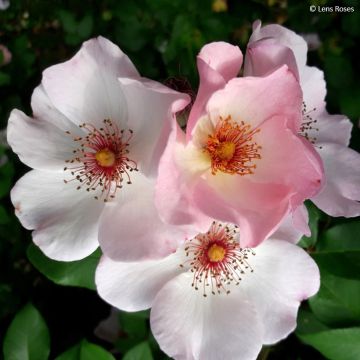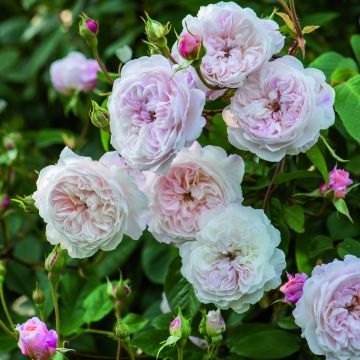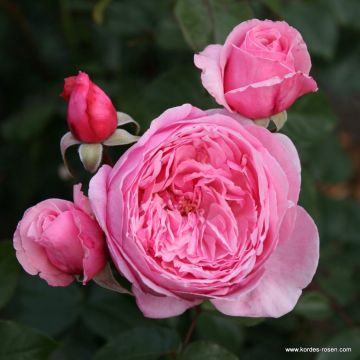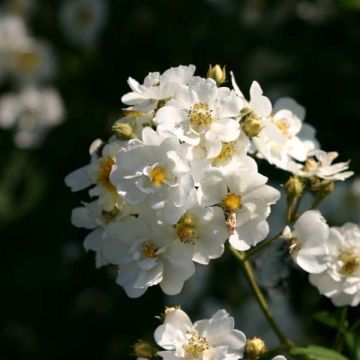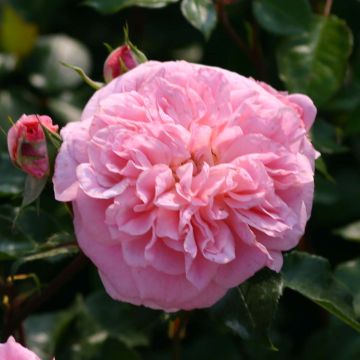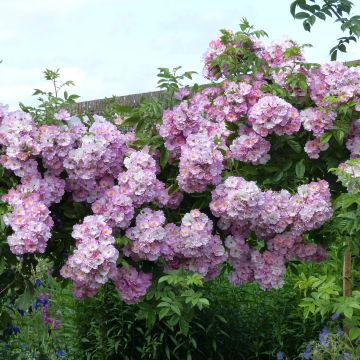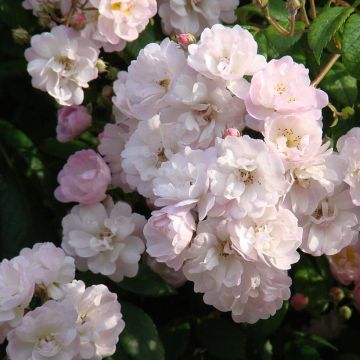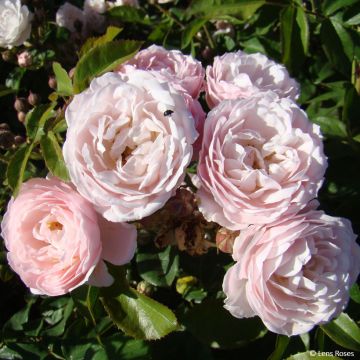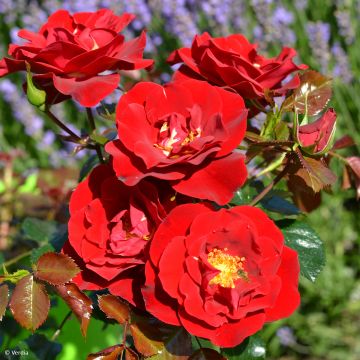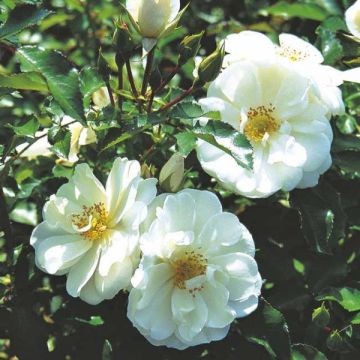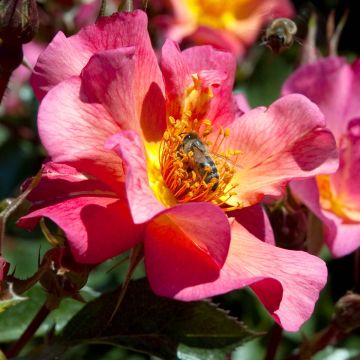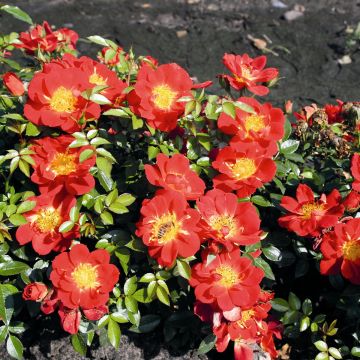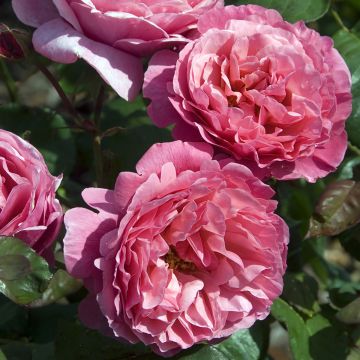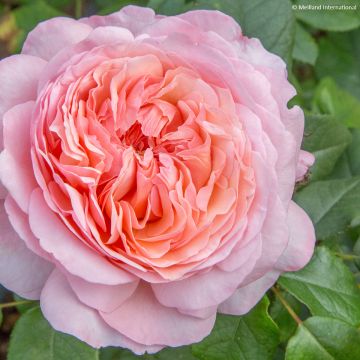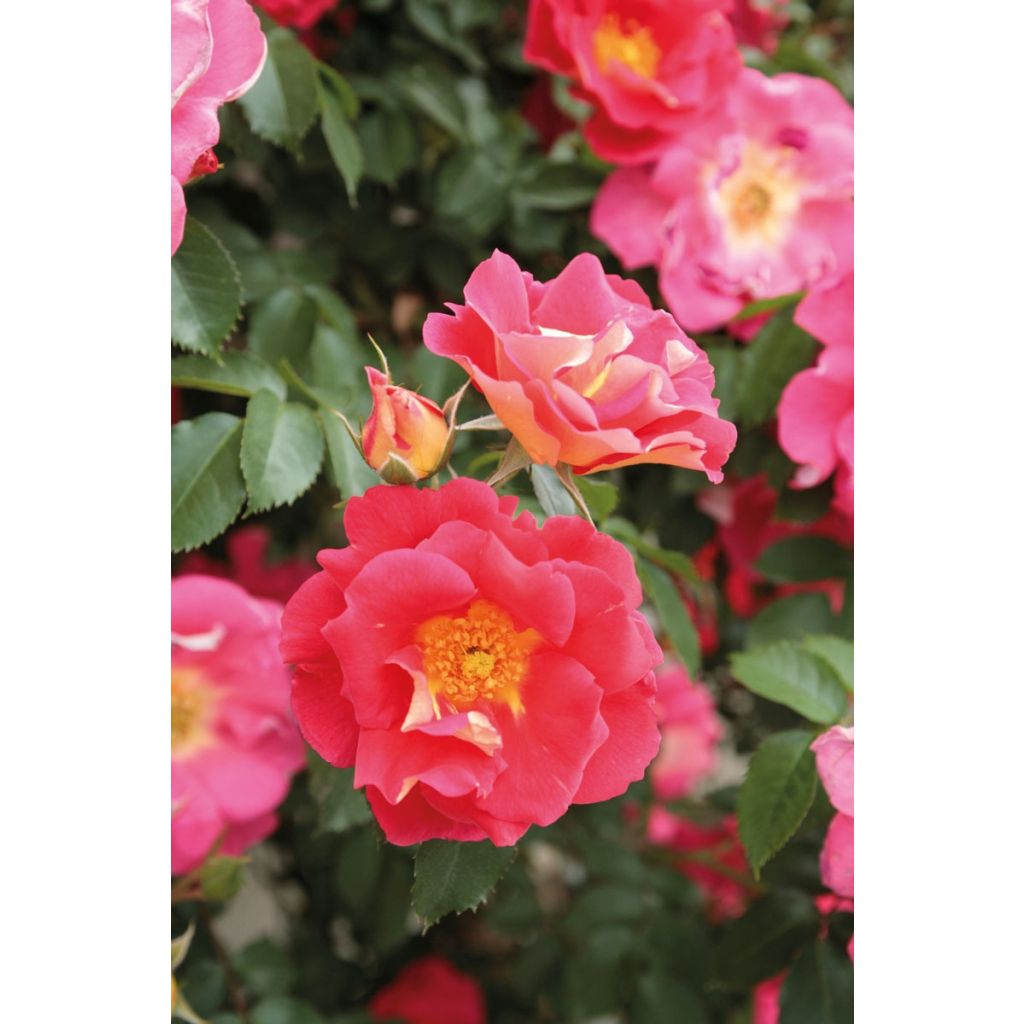

Rosa 'Max Bajazzo' - Climbing Rose
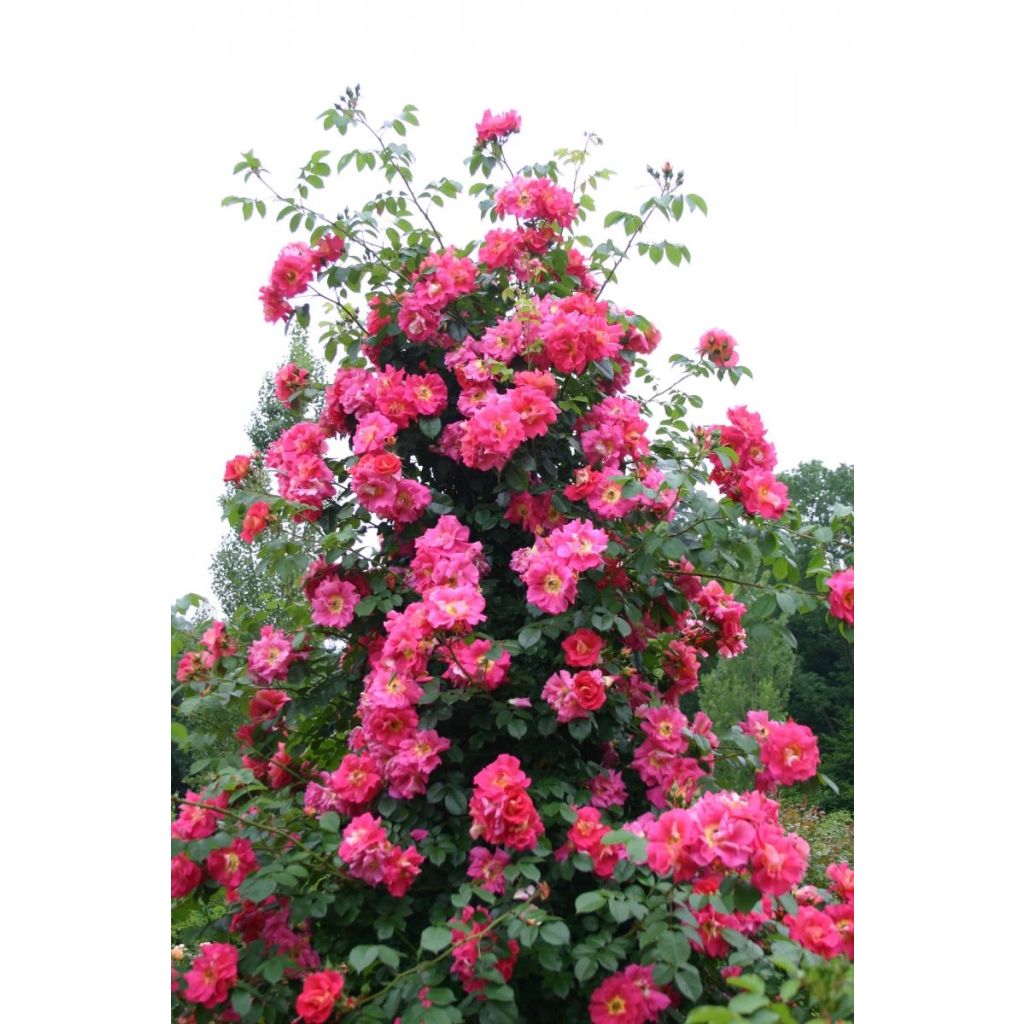

Rosa 'Max Bajazzo' - Climbing Rose
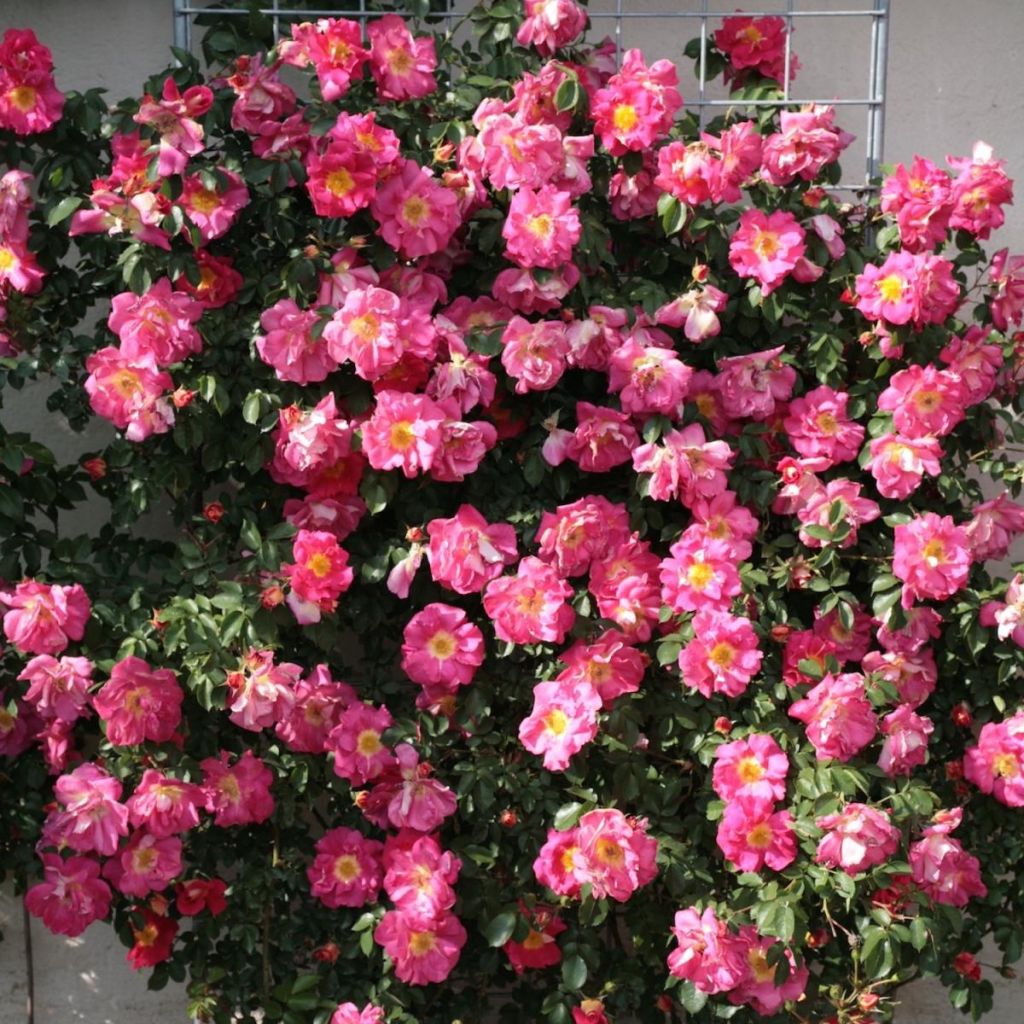

Rosa 'Max Bajazzo' - Climbing Rose
Rosa 'Max Bajazzo' - Climbing Rose
Rosa Climbing Max Bajazzo® KORteheba
KORteheba
This item cannot be shipped to the selected country
Delivery charge from €5.90
Delivery charge from €5.90
Delivery to Corse prohibited
More information
Schedule delivery date,
and select date in basket
This plant carries a 24 months recovery warranty
More information
We guarantee the quality of our plants for a full growing cycle, and will replace at our expense any plant that fails to recover under normal climatic and planting conditions.
From €5.90 for pickup delivery and €6.90 for home delivery
Express home delivery from €8.90.
From €5.90 for pickup delivery and €6.90 for home delivery
Express home delivery from €8.90.
Delivery to Corse prohibited: UE law prohibits the import of this plant from mainland France to Corse as part of the fight against Xylella fastidiosa. Please accept our sincere apologies.
More information

Does this plant fit my garden?
Set up your Plantfit profile →
Description
The Climbing 'Max Bajazzo' rose bush is a beautiful novelty belonging to the Climbing Max series, developed in Germany by the rose breeder Kordes. This rose has more than one advantage: an exceptional colour, a flowering that continues throughout the summer, and excellent disease resistance, established by the highly selective A.D.R label in 2010. Adopt this worry-free rose for its generosity, vigour, and variegated semi-double corollas. It will climb arches and trellises in just a few years or fill out a large flowering hedge.
This Climbing Max Bajazzo rose is an introduction to the European market 2011. This wonderful modern hybrid is a testament to the patient work and soulless selection of the Kordes house, renowned for its particularly hardy, floriferous, and disease-resistant creations. Climbing Max roses transform the garden into a fabulous flower parade. With their fantastic colours, these versatile climbers look their best when the majority of their long stems are trained horizontally.
'Bajazzo', with its climbing habit, will quickly reach a height of up to 2.50 m (8ft) and have a spread of 80 cm (32in), depending on the growing conditions. Its long stems are covered with numerous prickles, have glossy foliage, a fairly dark green colour, and are particularly healthy. This deciduous foliage, dense and abundant, appears in spring and falls in autumn. The flowers form in June-July, then in successive waves until October. They emerge on short shoots in the second year. They are semi-double corollas measuring 7-8 cm (3in) in diameter, with slightly undulated petals that open almost flat. Their colour ranges from almost red to pink, with orange undersides. The throat, clearly visible, is golden yellow. All these radiant colours mingle on the plant, creating a beautiful, flamboyant effect. The flowers are gathered in generous bouquets and are very popular with bees. This variety produces fruits at the end of the season.
'Climbing Max Bajazzo' is a rose that will please lovers of easy and colourful flowers. It is an ideal subject to dress up a pillar, a brick garage, a trellis, or a wire fence. Trained on an arch near the terrace, it will make a magnificent sight. When allowed to grow freely, without being pruned or trained on a support, it forms a very beautiful bush that can be placed, for example, at the back of a perennial bed or in a large flowering hedge. Roses in this colour range go well with white lilacs, blue-flowered clematis (C.jackmanii, Arabella, Blue Light) and blue and mauve morning glories.
Report an error about the product description
Plant habit
Flowering
Foliage
Botanical data
Rosa
Climbing Max Bajazzo® KORteheba
Rosaceae
KORteheba
Cultivar or hybrid
Other Rambling Roses
Planting and care
Plant your Climbing Max Bajazzo Rose in a rather sunny location. Climbing Max roses are tolerant but won't like excessive limestone and prefer fertile and loose soil. They will adapt to any garden if the soil is well-worked and rich. To plant your rose, work the soil by crumbling it well and put an amendment at the bottom of the planting hole, such as blood, fish and bone. Water generously after planting to remove air pockets. Water regularly for a few weeks to facilitate rooting. Pruning modern climbing roses is essential for flowering. At the end of winter, shorten the branches to 3-5 buds above the ground (at the lowest), and choose an outward-facing bud for a more elegant habit. Take advantage of this pruning to remove dead wood and unsightly branches. Pruning is done at an angle above an bud. As the flowers bloom, remove faded flowers, stimulating the development of other buds.
If you plant a climbing or rambling rose next to a living tree, the rose's root system will compete with that of the already well-established tree. To control watering, here's a trick: plant the rose in a large container with drainage holes at the base of the tree. The tree's roots will not penetrate the container for at least a year. Remove the container after 1 year, for example, by cutting one side without disturbing the rose's root system. The rose will have had time to develop its root system deeply and will be more resistant.
Planting period
Intended location
Care
This item has not been reviewed yet - be the first to leave a review about it.
Roses by producer
Haven't found what you were looking for?
Hardiness is the lowest winter temperature a plant can endure without suffering serious damage or even dying. However, hardiness is affected by location (a sheltered area, such as a patio), protection (winter cover) and soil type (hardiness is improved by well-drained soil).

Photo Sharing Terms & Conditions
In order to encourage gardeners to interact and share their experiences, Promesse de fleurs offers various media enabling content to be uploaded onto its Site - in particular via the ‘Photo sharing’ module.
The User agrees to refrain from:
- Posting any content that is illegal, prejudicial, insulting, racist, inciteful to hatred, revisionist, contrary to public decency, that infringes on privacy or on the privacy rights of third parties, in particular the publicity rights of persons and goods, intellectual property rights, or the right to privacy.
- Submitting content on behalf of a third party;
- Impersonate the identity of a third party and/or publish any personal information about a third party;
In general, the User undertakes to refrain from any unethical behaviour.
All Content (in particular text, comments, files, images, photos, videos, creative works, etc.), which may be subject to property or intellectual property rights, image or other private rights, shall remain the property of the User, subject to the limited rights granted by the terms of the licence granted by Promesse de fleurs as stated below. Users are at liberty to publish or not to publish such Content on the Site, notably via the ‘Photo Sharing’ facility, and accept that this Content shall be made public and freely accessible, notably on the Internet.
Users further acknowledge, undertake to have ,and guarantee that they hold all necessary rights and permissions to publish such material on the Site, in particular with regard to the legislation in force pertaining to any privacy, property, intellectual property, image, or contractual rights, or rights of any other nature. By publishing such Content on the Site, Users acknowledge accepting full liability as publishers of the Content within the meaning of the law, and grant Promesse de fleurs, free of charge, an inclusive, worldwide licence for the said Content for the entire duration of its publication, including all reproduction, representation, up/downloading, displaying, performing, transmission, and storage rights.
Users also grant permission for their name to be linked to the Content and accept that this link may not always be made available.
By engaging in posting material, Users consent to their Content becoming automatically accessible on the Internet, in particular on other sites and/or blogs and/or web pages of the Promesse de fleurs site, including in particular social pages and the Promesse de fleurs catalogue.
Users may secure the removal of entrusted content free of charge by issuing a simple request via our contact form.
The flowering period indicated on our website applies to countries and regions located in USDA zone 8 (France, the United Kingdom, Ireland, the Netherlands, etc.)
It will vary according to where you live:
- In zones 9 to 10 (Italy, Spain, Greece, etc.), flowering will occur about 2 to 4 weeks earlier.
- In zones 6 to 7 (Germany, Poland, Slovenia, and lower mountainous regions), flowering will be delayed by 2 to 3 weeks.
- In zone 5 (Central Europe, Scandinavia), blooming will be delayed by 3 to 5 weeks.
In temperate climates, pruning of spring-flowering shrubs (forsythia, spireas, etc.) should be done just after flowering.
Pruning of summer-flowering shrubs (Indian Lilac, Perovskia, etc.) can be done in winter or spring.
In cold regions as well as with frost-sensitive plants, avoid pruning too early when severe frosts may still occur.
The planting period indicated on our website applies to countries and regions located in USDA zone 8 (France, United Kingdom, Ireland, Netherlands).
It will vary according to where you live:
- In Mediterranean zones (Marseille, Madrid, Milan, etc.), autumn and winter are the best planting periods.
- In continental zones (Strasbourg, Munich, Vienna, etc.), delay planting by 2 to 3 weeks in spring and bring it forward by 2 to 4 weeks in autumn.
- In mountainous regions (the Alps, Pyrenees, Carpathians, etc.), it is best to plant in late spring (May-June) or late summer (August-September).
The harvesting period indicated on our website applies to countries and regions in USDA zone 8 (France, England, Ireland, the Netherlands).
In colder areas (Scandinavia, Poland, Austria...) fruit and vegetable harvests are likely to be delayed by 3-4 weeks.
In warmer areas (Italy, Spain, Greece, etc.), harvesting will probably take place earlier, depending on weather conditions.
The sowing periods indicated on our website apply to countries and regions within USDA Zone 8 (France, UK, Ireland, Netherlands).
In colder areas (Scandinavia, Poland, Austria...), delay any outdoor sowing by 3-4 weeks, or sow under glass.
In warmer climes (Italy, Spain, Greece, etc.), bring outdoor sowing forward by a few weeks.


































